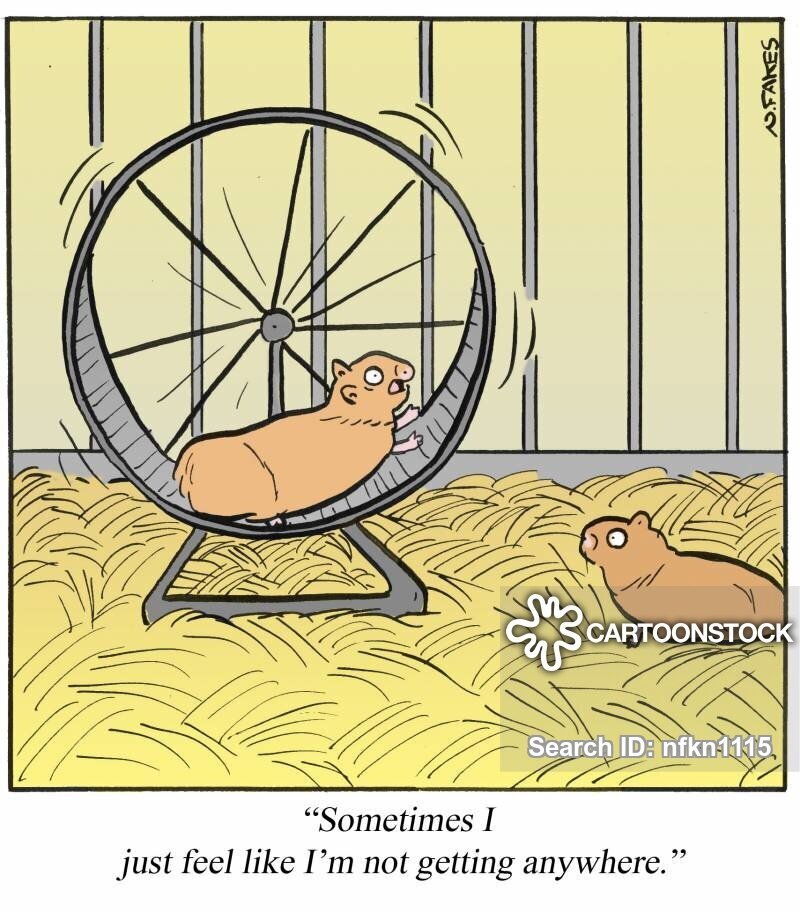What does productivity really mean?
One of the most popular workshops I teach is called Mindful Productivity - A Practical Guide to Well-doing. I’ve had several clients ask me to run it during the Covid-19 crisis. Which got me thinking, what the hell does being productive in the midst of a global pandemic really mean? When I asked a few people the question of what productivity means to them, overwhelmingly people said “achieving something”: completing a task, achieving something tangible, having an objective output, working hard, getting through the to-do list.
The standard productivity definition is the rate at which a person does useful work. Simple enough, right? The faster you produce something, the more productive you are. The ultimate goal of productivity, and productivity advice for that matter, is to reduce time spent on wasteful activities in order to free up time for rewarding activities. But maybe it’s not that simple. Who decides what’s “useful”, “wasteful” or “rewarding”? When did we start to measure life by our achievements and whether we finished everything on our to-do list? Is being productive really about doing more as fast as possible? What if we’re just trying to do more of the wrong stuff? I feel exhausted just writing those words.
Maybe instead of focusing on what we create and do - the visible, outside, external stuff - we could focus our productivity on what we’re creating internally? Is your urge to be more productive about getting stuff done so you have time for the other important things in your life or is it about helping you feel more in control? What kind of inner world do we want to create for ourselves because "the outer world is a reflection of the inner world”, to quote Roy T. Bennett.
From my years of experience unlocking human potential in high stress environments, I’ve noticed there is no -one-size-fits-all approach to productivity. We all have our own rhythms; we all dance to our own beats. That’s why experimenting with different approaches is so important to figure out what works for you in this particular season of your life. The one common experience I observe amongst the hundreds of people I’ve worked with is that many of us haven’t stopped to consider what productivity means to us. We’ve taken the standard ‘being productive equals keep doing, keep going, keep moving’, more-bigger-faster approach as the only option. And we’re stuck in the busyness trap, piling the pressure on ourselves to just keep being better. We mistakenly think that activity = productivity; quantity of hours somehow is the same as quality of output or experience.
Oh yeah, experience. Didn’t anyone tell you that this is meant to be fun? At least some of it, some of the time. That this is the only life you have and whilst happiness may be a poor measure of the worth and depth of one’s life (to paraphrase James Hollis in What Matters Most), so is productivity. Perhaps it’s time to realise that productivity, effectiveness and efficiency are all means to an end, not ends in themselves. Being productive for the sake of it is, quite frankly, pointless. Maybe it’s time to start focusing on what we want our productivity to achieve - on the ends, rather than the means. What if productivity meant accomplishing what you set out to do and feeling good about it along the way? Intentionally choosing how to spend your precious time on this planet and using your energy and focus for the things that make a difference in your life and the lives of the people you care about.
So here’s my mindful productivity advice, boiled down to its bare bones because I know you’re busy. Pick one thing. Give it your full attention. Feel as good doing it as you can right now. Then do the next thing. What that thing is is up to you. Maybe it’s rewatching Spooks on BBC iPlayer and pretending you’re 19 again (no, just me?). Maybe it’s writing the next 100 words of your novel. Maybe it’s making lunch for your kids. Maybe it’s taking a leaf out of this guy’s book….
One thing at a time. Deliberately chosen, aligned with your values and priorities. With your full attention.


